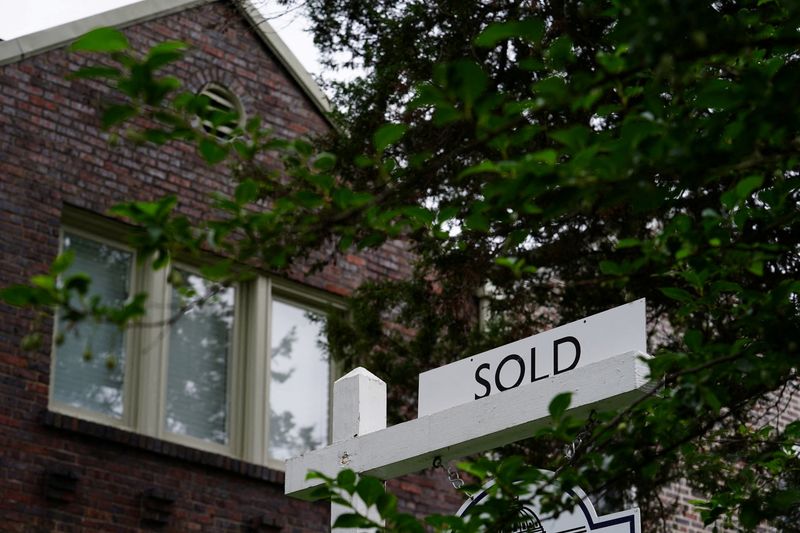By Amina Niasse
NEW YORK (Reuters) - Growing confidence that U.S. bond yields have hit their peak and could head lower from here looks set to make the housing market more affordable in coming weeks.
The release on Tuesday of softer inflation data for October cemented investors' view that the Federal Reserve is done hiking interest rates. It also fueled the latest leg of a big rally in Treasuries this month that has already brought yields below where bond strategists in a Reuters poll published earlier this week predicted they would be by the end of 2023.
The yield on the 10-year Treasury note, which influences U.S. mortgage rates, slid to below 4.50% on Tuesday, less than a month after it nosed above the 5% level for the first time since 2007.
Alongside that move, home loan costs have fallen, as the average interest rate on a 30-year fixed-rate mortgage plunged to 7.5% last week from nearly 7.9% - the highest since 2000 - two weeks earlier, according to Freddie Mac data.
Some analysts think mortgage rates are positioned to come down even more quickly as the spread between conventional 30-year mortgage rates and the 10-year Treasury yield, now near the largest since the 1980s, normalizes.
The gap has been driven in part by heightened volatility in the mortgage-backed securities market, said Len Kiefer, Freddie Mac's deputy chief economist.
"That's part of the reason why mortgage rates are so elevated - because of that uncertainty on rates and the volatility of rates," Kiefer said.
Measures of bond market volatility have fallen from earlier this year, and as bond yields show signs of falling further, home affordability may be set to improve.
"We think it's going to average around 6.2% for the fourth quarter of the year, Joel Kan, deputy chief economist at the Mortgage Bankers Association, said about the 30-year fixed-rate mortgage. "We expect the 10-year Treasury to come back down between now and the end of the year as well."
The national median mortgage payment in September was down $15 from August when payments increased slightly to $2,170 from the prior month, according to the MBA's Purchase Applications Payment Index. The median mortgage payment has risen steadily since 2022, and is now 11% higher than the current period last year.
Despite prospects for improved home loan affordability, economists project rates will remain above this previous decade's median of about 3.5%.

The Fed earlier this month left its benchmark overnight policy rate unchanged in the 5.25%-5.50% for the second consecutive meeting. Softening economic data and the anticipated end of an aggressive rate hiking cycle that began in March 2022 is feeding optimism the U.S. central bank may accomplish a "soft landing" for the economy that would allow yields to drop and credit costs - mortgage rates included - to come down as well.
"There are signs that there is going to be cooling around the corner when we look at the manufacturing and services sector gauges," Kan said. He added that if job and wage growth continue to cool, "we'll see a bigger slowdown in the services sector and finally a loosening of overall credit across the economy."